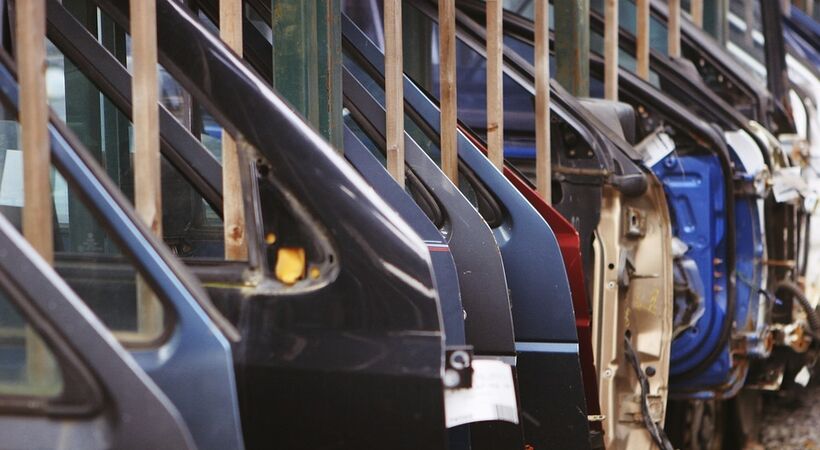Steelmakers involved in car production face potential business losses as car production in the UK last year fell to its lowest level since 1956, according to figures from the Society of Motor Manufacturers and Traders.
Almost 80% of a car, truck, or motorcycle can be made up of galvanized steel, so the production decrease of 34% within two years has serious implications on an industry which relies on product demand.
According to a report in the BBC, the SMMT said the figures were due to to a global microchip shortage and disruption caused by the coronavirus pandemic. Ironically, the high energy costs which have plagued the steel industry in recent years are also a challenging factor for car making companies- which are unable to offset production costs increasingly as demand lessens, and prices rise.
The main reason for the decline, according to the SMMT, was a severe shortage of semiconductors, or computer chips. A modern car has complex electronics and can use between 1,500 and 3,000 chips to operate items such as engine management systems, emissions controls, safety devices and navigation systems. However, other factors such as widespread staff absences as workers were forced to go into isolation, and the closure of Honda's factory in Swindon have caused figures to drop, with the SMMT’s chief executive Mike Hawes admitting it had been ‘a dismal year’.
However, Hawes also suggested that ‘despite this miserable year there is optimism’, largely because of the announcement of £4.9 billion in planned new investments, many of them in electric vehicles or technology. These, he said, had been triggered by the signing of a Brexit deal with the EU, which had provided ‘a real shot in the arm’, following five years of declining investment. But, he added the UK was ‘still playing catch-up’ after a long period of Brexit-related uncertainty.
"The industry did everything it could to be prepared [for new post-Brexit trading arrangements], and largely that has been relatively smooth."
Mike Hawes, chief executive of SMMT
"The industry did everything it could to be prepared [for new post-Brexit trading arrangements], and largely that has been relatively smooth," he told the BBC's Today programme.
"It has incurred additional costs though, because whilst we were able to benefit from the deal we have with the EU, which avoids tariffs, it doesn't avoid other tariff barriers and additional administration which has required additional people and additional costs to everyone, whether you're exporting or importing."
The UK steel industry is currently awaiting negotiations for steel tariffs to be lowered, which have been maintained due to the UK’s non-EU status. With multiple factors causing unrest in both the steel and automotive industries, it seems to be a waiting game in terms of available funding, COVID policy, and possible outsourcing as plants are closed through the pressure of increasing production costs limiting payoff.
Source: BBC









